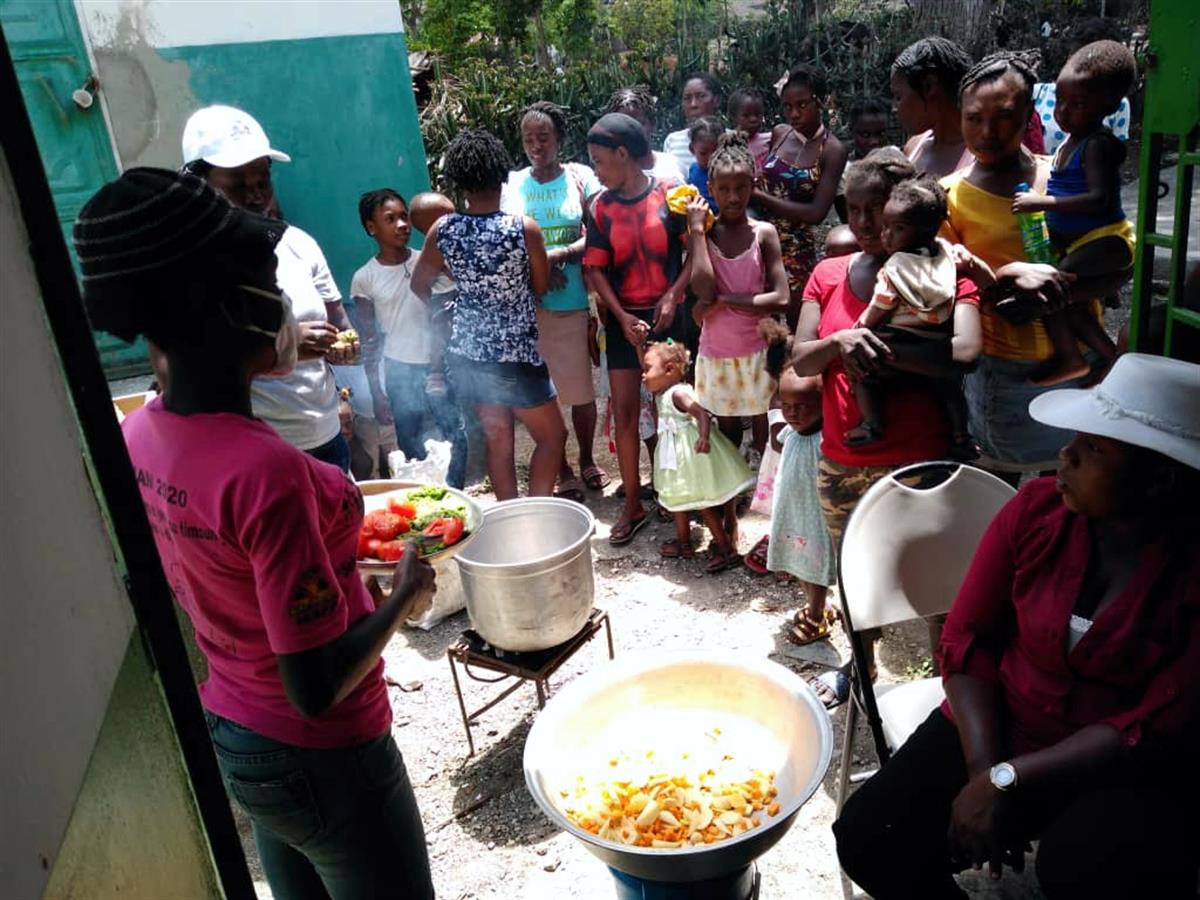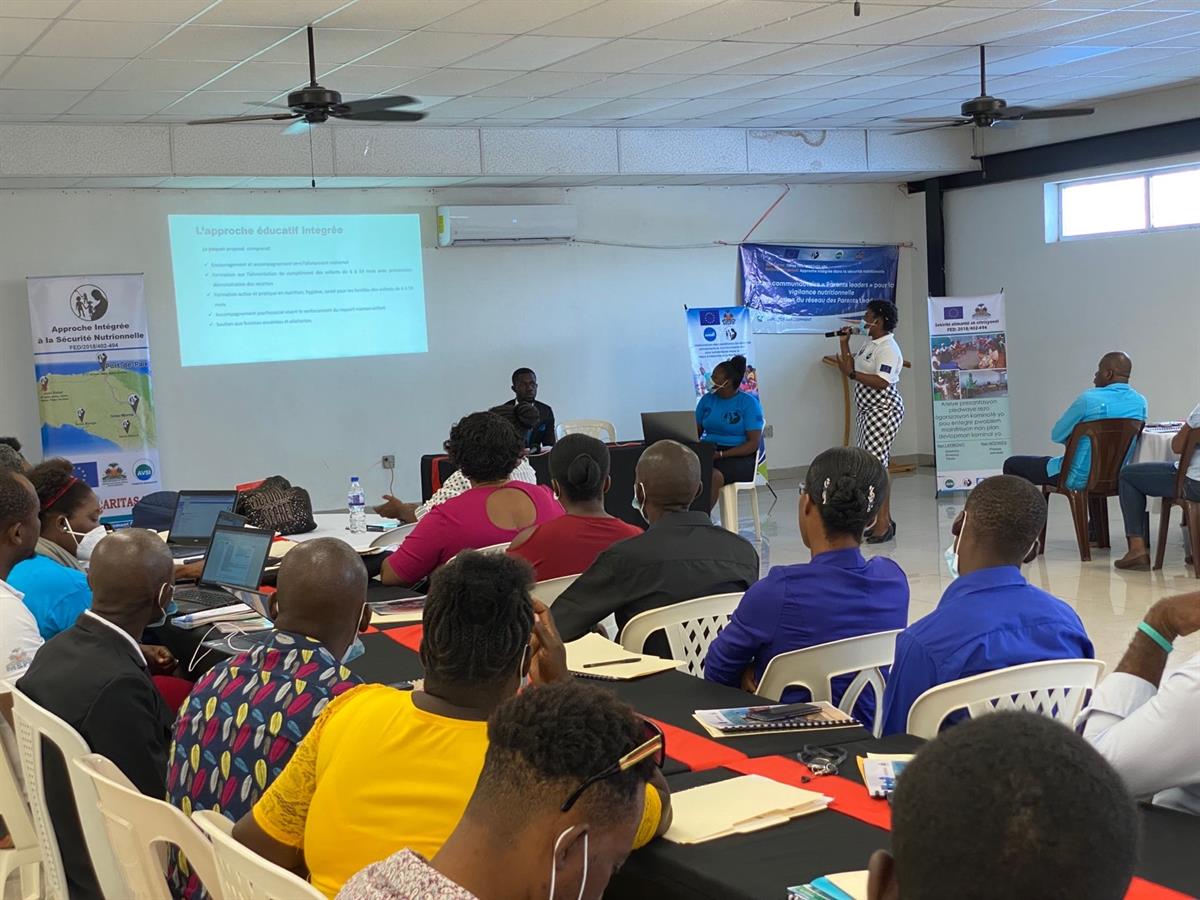Acute malnutrition is an endemic problem in the North-West and Haut Artibonite departments in Haiti, where the most vulnerable are always monitored, so that severe cases can be avoided through prevention, care and treatment.
Their access to healthcare services is hampered by road conditions and logistical difficulties, that prevent the availability of qualified personnel and medicines. Children are mostly affected by this situation.
In this context, the “Integrated Approach to Nutritional Security" project has been developed, thanks to funding provided by the European Union and realized for a 40-month period through a consortium including AVSI as leader with Cesal, Caritas Haiti, Oxfam Intermon.
The activities started in January 2019 and have been aimed at fostering the development of basic services for the most vulnerable in these two departments, while also increasing the prevention of malnutrition and treatment of acute forms of it in the municipalities of Port-de-paix, Jean Rabel, Gros Morne, Terre Neuve and Anse Rouge.

How to prevent malnutrition?
By improving the skills of the medical staff, as well as the capacities to conduct timely screenings and to manage malnutrition cases. Identifying and monitoring malnutrition cases has also been made possible through community involvement, by raising awareness on good nutritional, hygienic and health practices for mothers and children.
In addition, social protection interventions aimed at vulnerable households have been reinforced.
Such efforts were carried out through numerous training sessions dedicated to staff, parents, community leaders, even conducted in school canteens, to sensibilize on balanced nutrition and hygiene measures.
Treatment stations and health centers were also rehabilitated and equipped with necessary care and prevention tools.
Priority was especially given to an educational approach, aimed at supporting mothers and parents in their role, providing them with the knowledge needed to build a balanced diet for their families – always keeping into consideration the local context.
The community-based approach was also extremely important to fulfill the project activities: by valuing tradition and local expertise, the consortium implementing the project has been working in partnership with local institutions and grassroots community organizations, supporting families as the main core of change.

Some of the main results of the project
April 7, 2022, marked the end of this project through a closing workshop in Gonaïves. During the event, the project results have been shown and discussed.
Here are some highlights:
- 13 health facilities have been rehabilitated
- 40,488 people have acquired knowledge on good nutrition practices
- 971 households were supported with contingency plans to treat and prevent malnutrition
- 878 school canteen employees have improved their skills through training
- 178 officers in key healthcare institutions have strengthened their design, planning and management capacities to deal with the issue